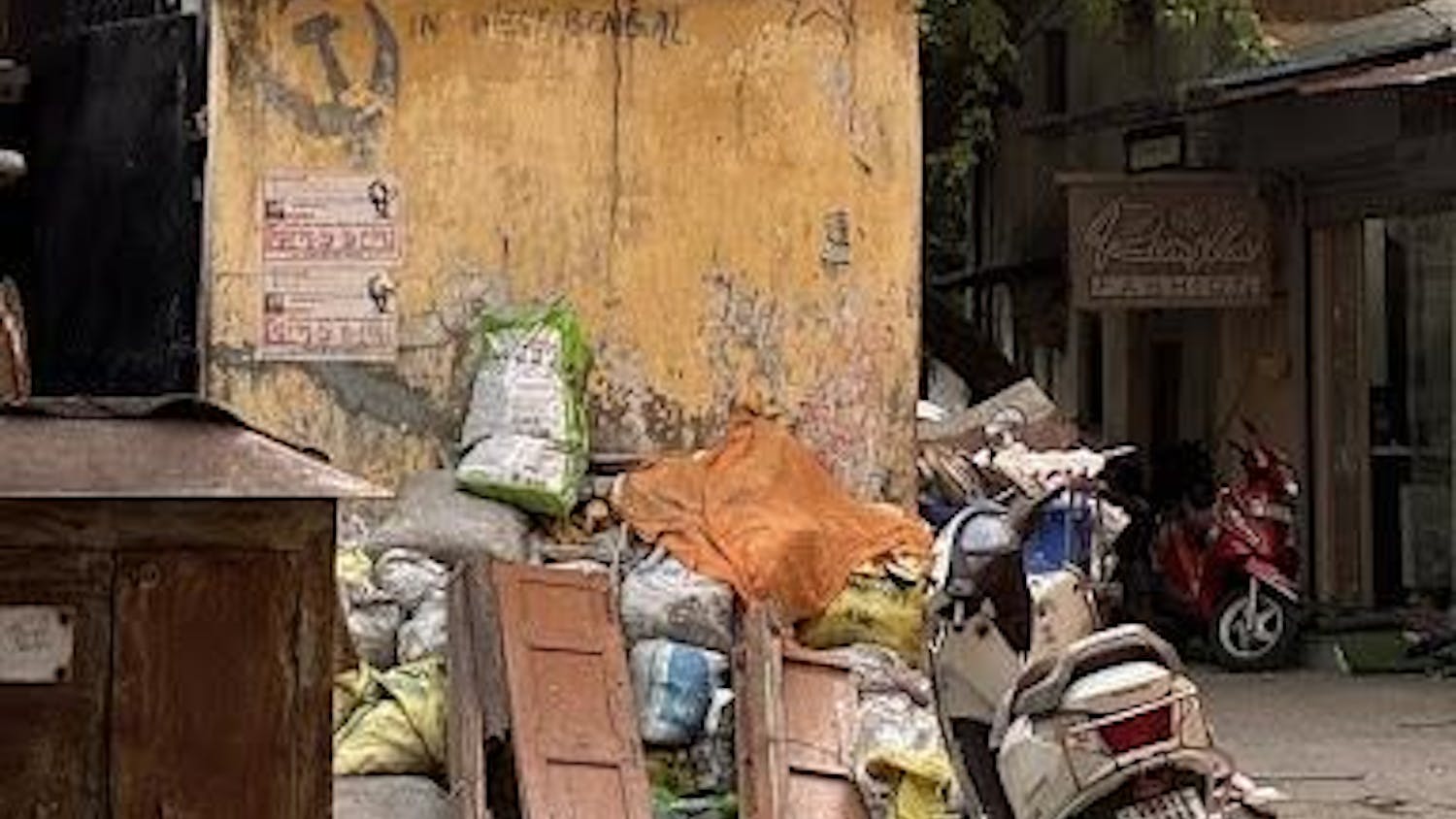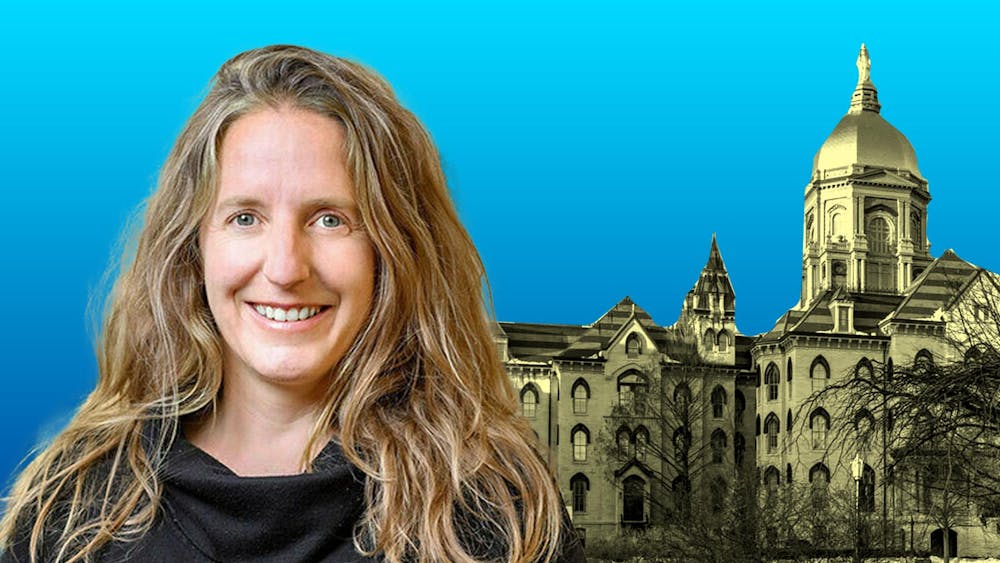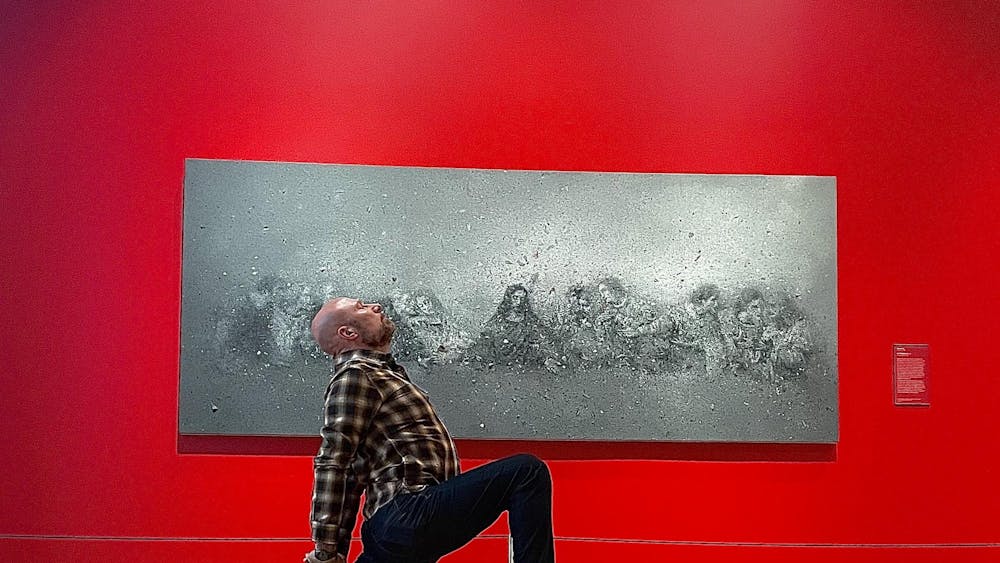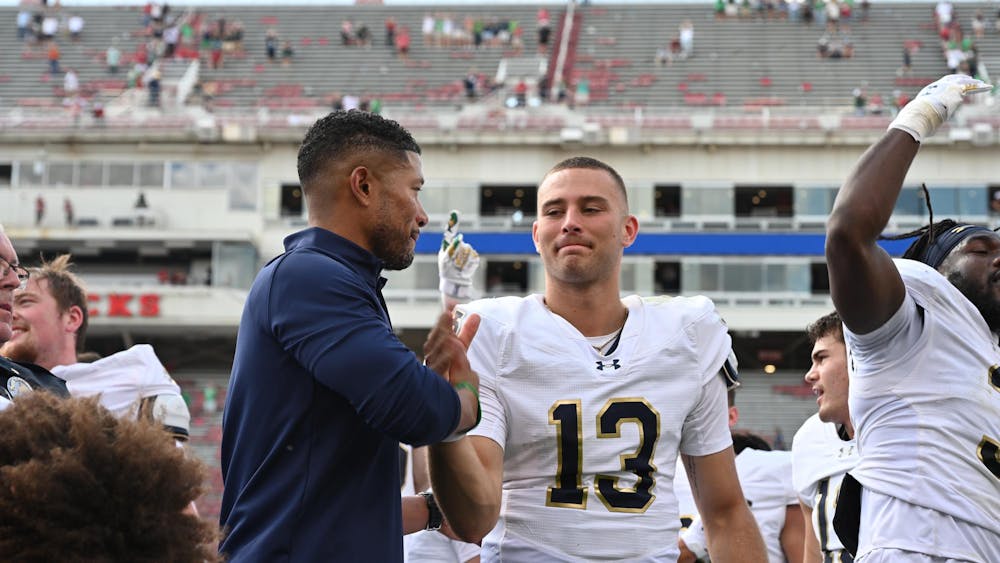When I entered Notre Dame as a freshman, I was pretty clueless. I learned my freshman year that one of the things I was most clueless about was my Catholic faith, which I had learned my whole life through the Confraternity of Christian Doctrine program and regular church attendance.
My freshman (required) theology class was my Waterloo. Gone were the easy morals and superficial lessons of the Bible stories I had learned about my whole life. Instead, we delved into the heart of the Old Testament, reading not just the “greatest hits,” but the whole narrative, grappling with the great questions. What does it mean for God to be God? And, what does it mean for us to be human? How do we understand our identity as children of God? For what purpose do we even exist?
I hated that theology class. Our small seminar used to meet in DeBartolo before class, just to talk about how awful it was. It was (ironically, along with my second required theology) one of the lowest grades I received at Notre Dame. And yet, now almost 15 years later, the lessons I learned in that class still stick with me.
In the study of theology, I found something new and compelling in my faith, which I had been learning about for 18 years, something intellectually demanding and personally challenging. Though my required theology classes were difficult for me, they also resonated strongly, and from that initial encounter (which would never have occurred without a University requirement), I was inspired to go on retreats, become more involved in campus ministry, eventually declare a theology minor and choose the untrodden path among my fellow accounting majors and begin to work full-time in church ministry after graduation. It is not hyperbole to say that my life was changed.
And so, it is deeply disturbing for me to hear that the core curriculum committee is considering changing, reducing, or eliminating the theology requirement. Although it is very worthwhile to study “Catholic things” (the sociology of religion, Dante’s Inferno, the history of the Catholic Church), these courses cannot and should not replace the encounter with the divine, with Truth, and with the big questions of life that occurs in the study of theology. I am sad that future students will not have the opportunity to (unwillingly) have that encounter. It is an encounter that inspires conversation and contemplation far beyond the classroom.
One of my fondest memories of college is sitting in the hallway of my dorm late into the evening with some friends (including my non-Catholic roommate) discussing points of faith and life — things we were learning in theology class — and our questions and doubts. Those were important conversations. They helped to shape me into the person I am today. They are the conversations that should come out of a Catholic university and out of a liberal arts education. They are conversations that have always been had in the Notre Dame family.
President Jenkins, Provost Burish and Core Curriculum Committee: please do not silence those conversations.
Kara Alworth O’Malley
ND ‘04, MA ‘06
Theology requirement: more life changing than infuriating
The views expressed in this column are those of the author and not necessarily those of The Observer.









